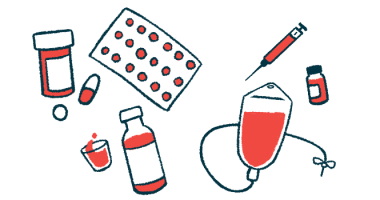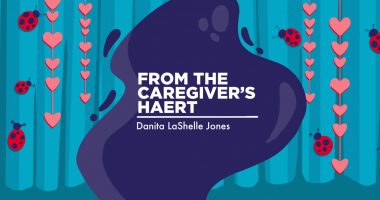Surprise or not? Bracing for the news we’d been led to expect
How even a warning didn't prepare us for a hereditary angioedema diagnosis

The doctor’s chuckle snapped my mind back from its racing.
“One,” he said, counting as he pointed at the screen, “two.” There they were, two tiny circles with two unmistakable heartbeats.
“That’s impossible,” I replied. “Twins don’t run in my family.”
“They do now,” he said.
Twins! I was thrown into tornadic-type thoughts: We would need a new plan, a support system for when they arrived, and someone would have to answer for these two genetic miracles being the first. (They were actually the seventh on my side of the family, I later learned.) I was worried, terrified, and confused. But the one thing I wasn’t was surprised.
About six weeks before the doctor visit, after a positive at-home pregnancy test, I thought it odd that I began to experience intense morning sickness. At first, it wasn’t something that I hadn’t experienced before. As the weeks continued, however, my morning sickness turned into an all-day affair; I was dizzy, had splitting headaches, and was so tired I could barely get through an entire day.
Finally, when I admitted to my husband, Paul, that I might’ve been in serious medical trouble, he rushed me to the hospital. After four bags of saline, oral potassium, and a diagnosis of severe dehydration and possible hyperemesis gravidarum (severe nausea, later confirmed), I told Paul to call my sister, a board-certified obstetrician gynecologist, and update her on everything that was going on.
“I’ll fuss at you when you’re feeling better,” she said over the phone. “By the way,” she added, “there’s definitely more than one kid in there.”
And there I was, two days later, getting the news from my doctor that my sister had confirmed from hundreds of miles away.
Years later, when I asked how she’d known without ultrasounds or blood tests, she replied, “All your symptoms pointed to multiples.”
She was right. However, it didn’t make the news easier to swallow.
Prelude to a diagnosis
When our oldest daughter, whom we lovingly call Ladybug, was diagnosed with hereditary angioedema (HAE) in 2021, it wasn’t the first time we’d heard that the disease was a possibility.
Before we found the incredible doctor who officially diagnosed her, she was experiencing many symptoms that seemed to have no rhyme or reason. We rushed her to the hospital several times for swelling that couldn’t be relieved through epinephrine or Benadryl (diphenhydramine). She experienced debilitating stomach pain that made us think she had appendicitis and hand and face tingling and numbness, which led to complaints.
Because Ladybug also suffered from severe allergies, we thought her symptoms were weird because of something she’d eaten or outdoor play. But we knew more had to be done when the symptoms increased in severity and frequency.
“This sounds like HAE,” her current doctor told us on our first visit.
He prepared us for the diagnosis. We received literature while he encouraged avid research and even worked with Ladybug’s allergist to ensure her peculiar allergies were well monitored.
Yet with all the preparation and a heads-up about what was to come, I still had a hard time when I received the phone call that her symptoms were officially tied to HAE. It took me months to accept the diagnosis.
One of the hardest things for a parent or caregiver of a young child with a chronic illness is often the confirmation of said illness. Sometimes, the official diagnosis brings our worst fears to life. Have we been prepared for the emergency room trips or the frequent trial and error of finding the proper HAE treatment for our child? Sure. But facing that future can be pretty overwhelming.
Not unlike learning we were having twins, the best thing to do when your loved one is diagnosed with angioedema is to make a plan, find support, and be willing to understand that while you may not have all the answers, just accepting your new reality is a step in the right direction.
Note: Angioedema News is strictly a news and information website about the disease. It does not provide medical advice, diagnosis, or treatment. This content is not intended to be a substitute for professional medical advice, diagnosis, or treatment. Always seek the advice of your physician or other qualified health provider with any questions you may have regarding a medical condition. Never disregard professional medical advice or delay in seeking it because of something you have read on this website. The opinions expressed in this column are not those of Angioedema News or its parent company, Bionews, and are intended to spark discussion about issues pertaining to angioedema.









Comments